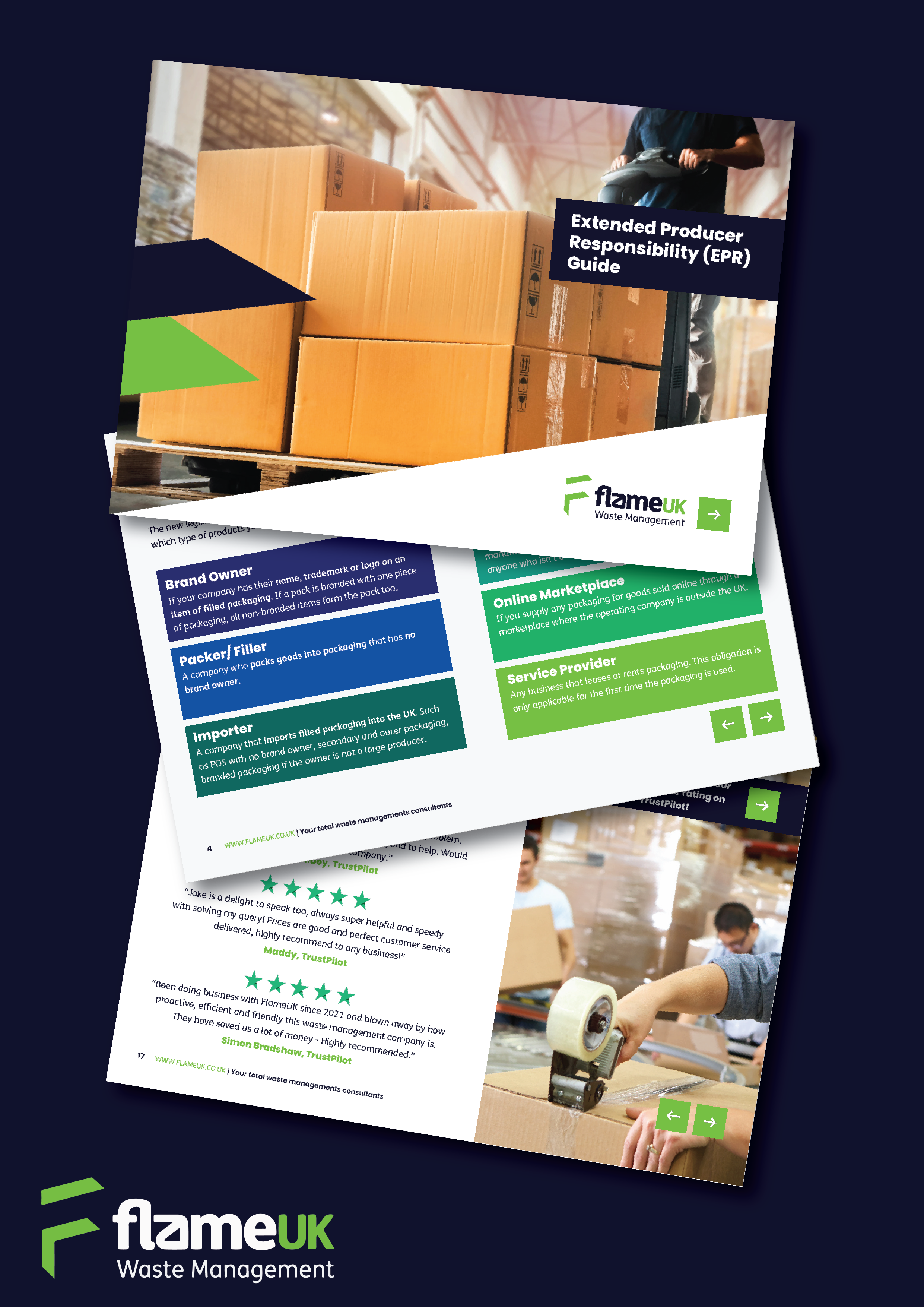EXTENDED PRODUCER rESPONSIBILITY
EPR and Your Business
EPR will require more detailed data reporting than what you’re used to providing. If your business handles more than 25 tonnes of packaging and has a turnover of more than £1 million a year, you’ll want to keep scrolling.
What is Extended Producer Responsibility?
Extended Producer Responsibility (EPR) is a new piece of UK legislation which is a reform of the UK Packaging Waste Regulations (2007). It’s been developed as an incentive for producers to use less packaging and design packaging that is easy to recycle.
The responsibility of recycling is now placed on the importer and brand owner of the packaging as they will now have to pay the full net cost (FNC) of managing the packaging once it becomes waste. This includes the collection, recycling, disposal and the cleaning of any littered and fly-tipped packaging. It will also see the full cost of collecting household waste shift from the taxpayer to the producer.
Scroll down to download the full EPR Guide.
Who will be impacted?
Small Producers
Small producers must have had a turnover of £1 million and handled over 25 tonnes of packaging in the previous calendar year.
They will have to report data on packaging handled annually and pay the environmental regulator an annual fee. Small businesses will also need to register with the environmental regulator by January 2024.
Large Producers
Larger producers must have had a turnover of £2 million and handled over 50 tonnes of packaging in the previous calendar year.
Large producers will need to report data on packaging handled every six months and pay the environmental regulator an annual fee. They will also need to register with the environmental regulator by July 2023. A new obligation will apply as they will need to pay the scheme administrator an administrative and a waste management fee for household and street bin packaging. Large producers will still need to procure PRNs or PERNs too.
Prepare your packaging for the EPR data submission
Data reporting has begun in July 2023 for the first data submission.
Just remeber the main difference between the current regulations and EPR is that there will now be a single point of compliance instead of compliance being shared across different activities. This means all obligated packaging must be reported just once by the obligated producer organisation who then finance the full cost of dealing with the packaging from when it it placed on the market, to when it becomes waste and is collected at its end of life.
The data which must be collected and reported includes:
Download the full EPR guide here!
Download the guide to find out more about what the EPR scheme means to your business, the cost implications involved, details of what you are required to report on and how Flame UK can support you on this journey

Catch up on the latest EPR news and updates:
Defra delays EPR fees to October 2025
On 25th July 2023, Defra announced the decision to defer extended producer responsibility (EPR) fees by one year.
How will the delays in EPR affect your business?
Defra confirms a delay to Extended Producer Responsibility (EPR) waste management fees until 2025 in the hopes of driving down inflation.
Plastic Packaging Tax
(PPT)
The UK government is exploring the idea of adopting a mass balance approach for chemically recycled plastic in the Plastic Packaging Tax

